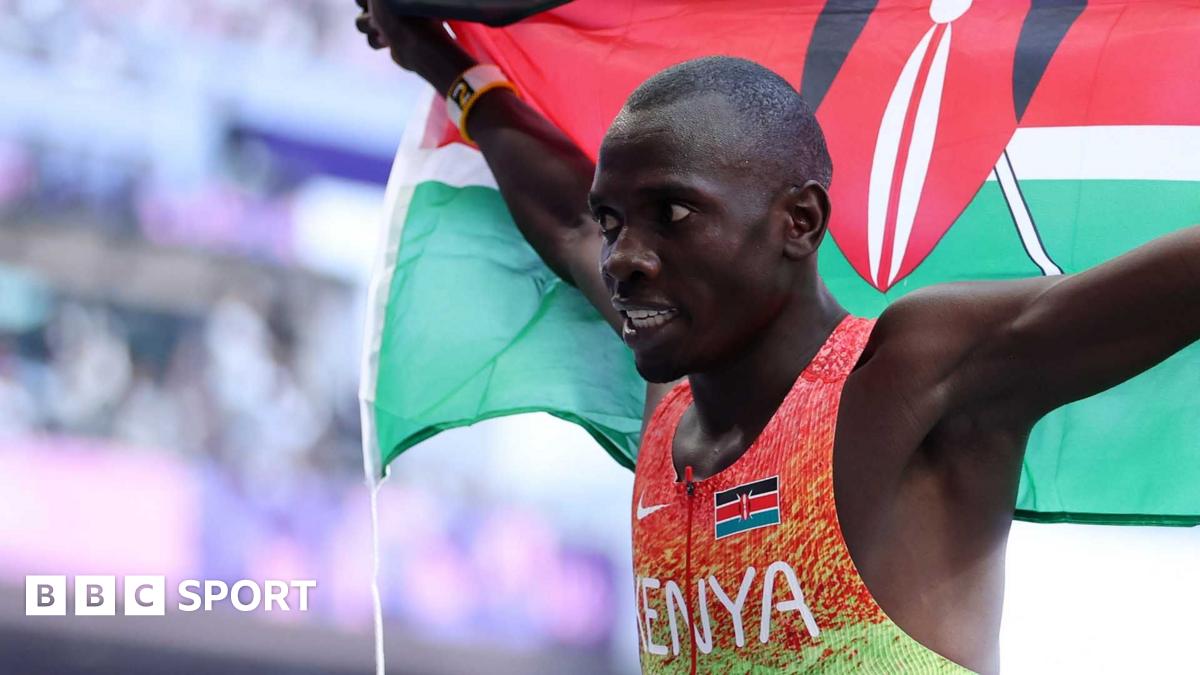Growing up in extreme poverty in a small village in western Kenya, Emmanuel Wanyonyi’s daily life was marked by hardship.
He was forced out of school at the age of 10 and spent long hours herding livestock. He used to earn less than $2 (£1.58) a month.
Wanyonyi endured exploitation, regularly changing jobs after sometimes going unpaid, but he was a man who became the current Olympic champion in the 800 m run persisted because shelter and food were provided.
“Life and looking after cattle as a child was tough,” Wanyonyi told BBC Sport Africa.
“I thought about quitting my job and going back home, but I remembered that I would still face the same challenges I was running from.
“When I got a little bit, I took it home to my brothers and sisters so they could eat something.”
Wanyonyi, one of 11 children, had no choice but to drop out of school as his family could not afford the exam fees of just 40 Kenyan shillings ($0.30/24 pence).
He eventually managed to return to education with some of the earnings accumulated during his time as a shepherd and laborer, and found a sense of purpose and escape in athletics.
Then in 2018 came the sudden and unexplained death of his father, who was working as a caretaker at the dam.
“He just dropped by the school to give me some money to buy running shoes with the payment he received that day,” Wanyonyi, now 20, explained.
“Like being strangled and placed by the water. He was found with a mark on his head as if he had been hit.
“I think what happened was he put his clothes down there to go swimming and then someone came to rob him.”
Without an official autopsy, Wanyonyi says his family “never found closure.”
“My world came crashing down that day. It was painful, but I didn’t have the luxury of mourning. I had to become the man of the house immediately.”





